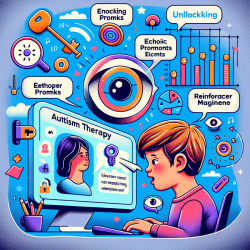Introduction
As a speech-language pathologist, you may wonder how mindfulness can intersect with your practice, especially when working with children. The recent study titled "Brief Mindfulness Intervention vs. Health Enhancement Program for Patients Undergoing Dialysis: A Randomized Controlled Trial" sheds light on the potential of mindfulness interventions in healthcare settings. While the study focuses on dialysis patients, the implications for broader applications, including pediatric care, are significant.
The Study: A Closer Look
The study compared a Brief Mindfulness Intervention (BMI) with a Health Enhancement Program (HEP) among dialysis patients experiencing symptoms of depression and anxiety. Conducted over eight weeks, the trial involved 55 participants, aiming to assess changes in depression and anxiety symptoms using the Patient Health Questionnaire-9 (PHQ-9) and Generalized Anxiety Disorder-7 (GAD-7) scales.
Key Findings
- Both BMI and HEP significantly reduced depressive symptoms, indicating their potential as effective interventions.
- BMI was notably more effective than HEP in reducing anxiety symptoms, especially in participants with higher baseline anxiety.
- The study suggests that mindfulness-based interventions could be more beneficial for anxiety than traditional health programs.
Implications for Practice
While the study focused on adults undergoing dialysis, the principles of mindfulness can be adapted to benefit children in various therapeutic settings. Here’s how you can incorporate these findings into your practice:
- Mindfulness Activities: Integrate age-appropriate mindfulness activities, such as guided breathing exercises or mindful listening, into therapy sessions to help children manage anxiety.
- Training and Resources: Consider pursuing additional training in mindfulness-based interventions to enhance your therapeutic toolkit.
- Collaborative Care: Work with other healthcare professionals to implement mindfulness strategies as part of a comprehensive care plan for children with anxiety or stress-related issues.
Encouraging Further Research
The promising results of this study highlight the need for further research into mindfulness interventions across different populations, including children. By exploring the efficacy of mindfulness in pediatric settings, we can develop targeted strategies to support children’s mental health and well-being.
Conclusion
The study underscores the potential of mindfulness interventions in reducing anxiety and depression symptoms, offering a non-pharmacological approach that could be particularly beneficial in pediatric therapy. As practitioners, embracing mindfulness can lead to improved outcomes for the children we serve.
To read the original research paper, please follow this link: Brief Mindfulness Intervention vs. Health Enhancement Program for Patients Undergoing Dialysis: A Randomized Controlled Trial.










